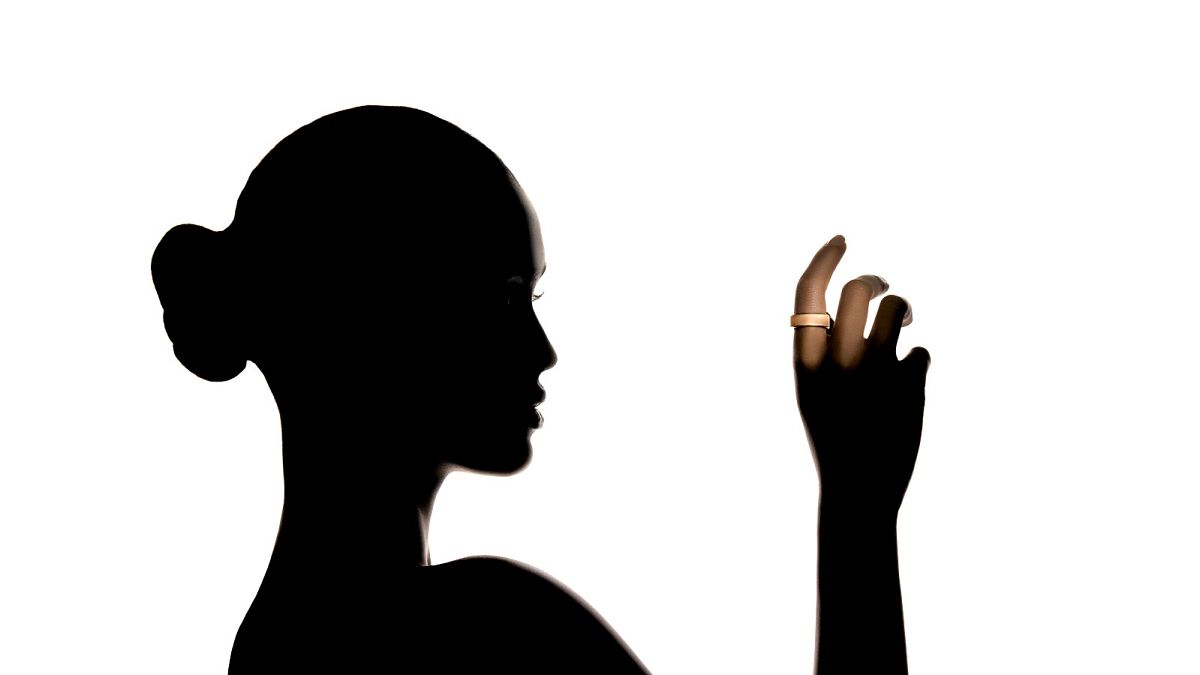


Euronews Next went to try out some of the latest health tech at the Las Vegas tech show.
Health and wellness technology features highly again at the Consumer Electronics Show (CES) in Las Vegas.
From wearables to AI-powered tools to track and analyse your well-being at home, here are some of the technologies that caught our eye on the CES show floor this year.
The UK and India-based company Ultrahuman showcased what it calls the “world’s first” luxury smart ring on Tuesday.
They are made of 18K gold or platinum and come in three colours called ‘desert rose,’ ‘dune,’ and ‘desert snow’.
The collection, called Rare, doesn’t just look the part but also gives key health indicators such as sleep, movement, heart rate (HR), heart rate variability (HRV), stress, and skin temperature.
It can even tell if you are drinking too much coffee.
“The ring had to be iconic, different, and something that I feel good wearing,” Bhuvan Srinivasan, chief business officer at Ultrahuman, told Euronews Next at CES.
Asked how it compares to Samsung’s smart ring, he said: “We just made a better ring. If you check out our app there are many kinds of things, such as a feature called Caffeine Window that tells you when to drink and when to taper that off so that you can get optimal sleep”.
But compared to Samsung’s smart ring which costs around €380, the Rare collection will cost around $2,000 (almost €2,000).
The rings will debut in Paris and London, going on sale at Printemps and Selfridges respectively.
South Korean company Smartsound displayed its at-home smart stethoscope for humans and a separate one for pets.
The impressive technology can within a couple of minutes detect lung and heart health, and even detect the movement of a fetus and its cardiopulmonary sound.
The company says that with its app, you can measure your health over time and check your health with artificial intelligence (AI).
As for your pets, the device works in a similar way to detect heart and lung analysis to detect lung cracking and wheezing, and the heart’s murmur and valves.
French multinational beauty company L’Oréal says its latest gadget can tell you what your skin does and doesn’t need.
The company revealed at CES 2025 the Cell BioPrint, a device that’s designed to test and analyse your skin, giving personalised advice on how to slow down signs of ageing, including wrinkles. It then recommends its products.
The device was made in partnership with the Korean start-up NanoEntek.
The test closely resembles a COVID-19 test in that skin samples are collected and analysed through the Cell BioPrint box. A camera will also take a couple of images of your skin.
L’Oréal is hoping its latest piece of beauty tech kit can demystify skincare.
“Nine out of ten people are frustrated with their skincare choice,” Guive Balooch, L’Oréal’s global managing director of augmented beauty and open innovation, told Euronews Next.
“They don’t know what’s right for their skin. And the challenge is to know what’s really tailored for your skin. You need to go deeper than the surface and understand the biology,” he added.
French company Withings is again making headlines at CES with its consumer-focused health devices.
This year, it is showing off a travel-size home blood pressure monitor that comes with interchangeable arm cuffs.
It costs $130 (around €130) and can help users detect conditions such as hypertension by testing systolic and diastolic blood pressure.
Another device, though not for sale and built as a prototype, is Withings’ Ominia. It’s a connected mirror that analyses and interprets each individual’s health data.
The smart mirror promises an interactive 360-degree view of your vital indicators and will use AI, the company says, to analyse indicators such as heart health, nutrition trends, body composition, lung function, activity tracking, and sleep quality.
The mirror can also talk to you, tell you motivational phrases, and remind you to take your medication.
The American company InBody displayed its newest innovation that can measure body fat mass, BMI, and basal metabolic rate.
The technology is now being brought to a scale that is available for the home, so consumers too can know more about their bodies.
The company is also presenting its InBody app and LookinBody Web, a cloud-based application for body composition data management.